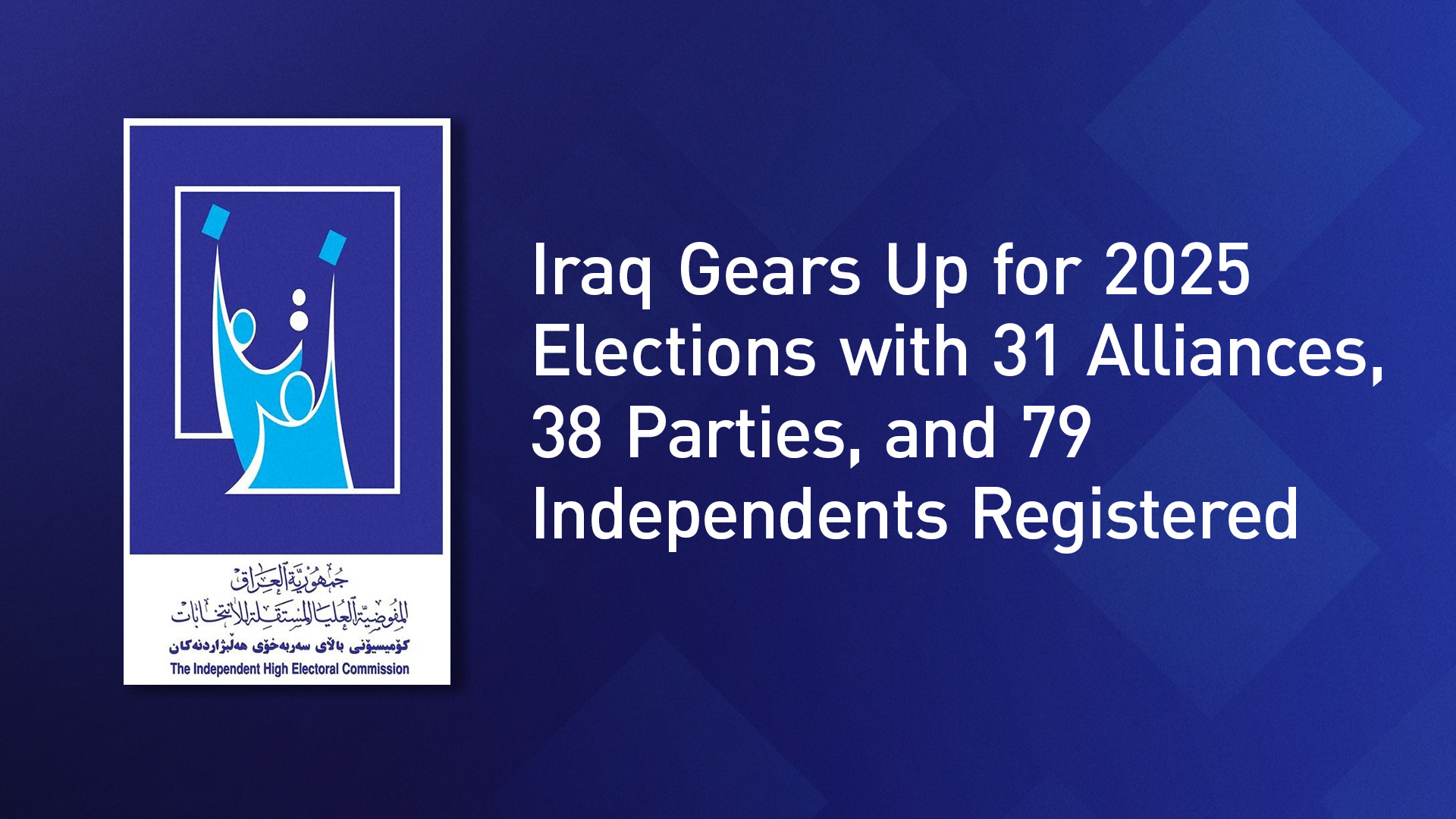Iraq Gears Up for 2025 Elections with 31 Alliances, 38 Parties, and 79 Independents Registered
In a statement to Kurdistan24 on Tuesday, Jumana Ghalai, the Commission’s spokesperson, confirmed that the candidate numbering process for alliances, parties, and independents will commence on August 9, 2025.

ERBIL (Kurdistan24) — Iraq’s Independent High Electoral Commission announced that 31 political alliances, 38 parties, and 79 independent candidates have officially registered to participate in the country’s upcoming parliamentary elections scheduled for November 11, 2025.
In a statement to Kurdistan24 on Tuesday, Jumana Ghalai, the Commission’s spokesperson, confirmed that the candidate numbering process for alliances, parties, and independents will commence on August 9, 2025.
Ghalai further explained that the registration process had concluded successfully, reflecting broad political engagement from across Iraq’s diverse political spectrum.
“The registration phase has seen a total of 31 alliances, 38 political parties, and 79 independents submit their applications to run in the 2025 parliamentary elections,” she noted.
The Commission is now reviewing all submitted candidacy lists. After this review, the official campaign period will be announced, and electoral activities will proceed.
Iraq Prepares for a Critical Election Amid Political Shifts
Iraq’s 2025 parliamentary elections come at a crucial time as the country continues to navigate internal political divisions, security challenges, and public pressure for reform. The previous elections in 2021 were marked by a historically low voter turnout of 41%, widespread public skepticism, and post-election disputes that delayed government formation for over a year.
Since then, Iraq has witnessed increased fragmentation within both Shiite and Sunni political blocs, a stronger push by independent candidates, and mounting calls—especially from younger Iraqis and protest movements—for transparency, accountability, and governance reform.
The reintroduction of a multi-constituency system, which divides provinces into several electoral districts, has reshaped how political parties strategize and form alliances. While major parties such as the Coordination Framework, Sadrists, KDP, and PUK are expected to play pivotal roles, the rise of independents and smaller reformist groups could disrupt traditional power balances.
This election will also serve as a test of the Independent High Electoral Commission's ability to conduct a fair and credible vote, following criticisms and logistical hurdles encountered in past elections. The involvement of the UN and international observers is expected once again to ensure transparency and public confidence in the electoral process.
U.S. Pressure on PMF Casts Shadow Over Iraq’s 2025 Elections
The upcoming elections also unfold amid heightened U.S. pressure on Baghdad to dismantle the Popular Mobilization Forces (PMF) and other militia groups operating under its umbrella. Washington has issued stern warnings against the passage of a controversial bill currently in the Iraqi parliament that seeks to grant the PMF broader legal and institutional powers. U.S. officials argue that such legislation would entrench militia influence within Iraq’s security and political apparatus, potentially undermining state sovereignty and democratic processes.
These tensions are expected to significantly influence electoral dynamics, particularly among Shiite blocs, some of which maintain close ties to the PMF. The debate over the PMF’s future could become a polarizing issue on the campaign trail, shaping voter alignment and affecting the legitimacy and outcome of the election itself.
Moreover, regional dynamics—particularly tensions between the U.S. and Iran, continued presence of ISIS remnants, and economic pressures—add further complexity to the political landscape in which these elections are being prepared.
If successfully held, the November 2025 vote could redefine Iraq’s political future, determine the next prime minister, and either restore public faith in the electoral process or deepen existing disillusionment.